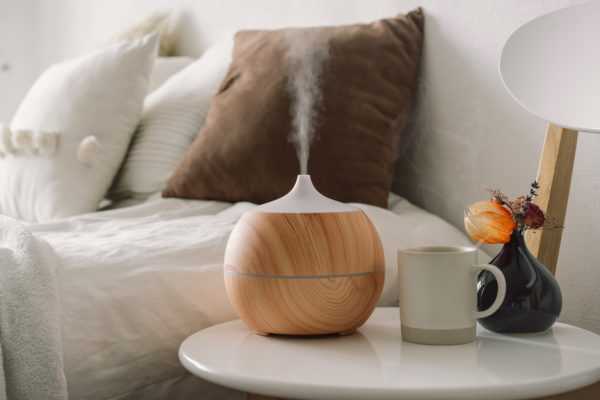How Humidity Impacts Your Sleep

Have you ever wondered why the temperature can feel so different even when the thermometer shows the same number? That change in how we feel the temperature is often due to humidity. Humidity impacts our comfort level at any given temperature, and if it is too high or too low, it can disrupt our sleep.
Why Does It Feel So Humid at Night?
Have you ever woken up in the middle of the night wondering why your bedroom feels so humid? Humidity is closely related to temperature. When the temperature decreases at night, the amount of water in the air increases because cooler air is unable to hold as much moisture.
Other Reasons for High Humidity
The geography, climate, and seasonal changes where you live also impact how much humidity you may experience, as do many household activities. Cooking, laundry, showers, and even the simple act of breathing all increase humidity indoors, especially in poorly ventilated areas.
How Humidity Affects Sleep Quality
When the humidity level is higher, it makes it difficult for sweat to evaporate, resulting in damp, sweaty sleep. This can cause discomfort, wake you up, and make you feel restless throughout the night. Allergies and asthma are often triggered because mold, bacteria, and dust mites favor high humidity. Ensuring you keep your bedding clean with a mattress protector can help prevent the effects of some of these irritants.
Even if the humidity level is not super high, we have much less control over adjusting to humidity and temperature changes while we’re sleeping. Our body temperature shifts throughout the night. So, while you may fall asleep comfortably under your covers, you may find that you wake up hot and sweaty a few hours later.
Low humidity can also have negative effects. During winter, or if you live in a cooler, drier climate, lower humidity can cause dryness of the skin, nose, eyes, and mouth, which can also harm your sleep quality.
How to Control Humidity
Thankfully, there are various ways to control humidity that can help create a better sleep environment.
- Adjust the temperature of your bedroom: Since humidity is so closely related to temperature, adjusting the temperature to a comfortable setting at night is helpful.
- Increase air circulation: Allowing for air circulation or ventilation, either by keeping a bedroom window or door open, can help combat humidity buildup.
- Run a dehumidifier or humidifier: These inexpensive appliances can maintain proper levels of humidity in your bedroom as you sleep.
- Invest in cooler bedding: Using sheets that offer cooling benefits or thermoregulating properties can help you sleep more comfortably.
Sources
“Dry Air Can Negatively Impact Your Health – Here’s What to Do about It.” Cleveland Clinic. health.clevelandclinic/can-best-combat-effects-dry-winter-air
“Humidity and Condensation.” Level: The Authority of Sustainable Building. level.org.nz/passive-design/controlling-indoor-air-quality/humidity-and-condensation/
“Humidity and Sleep.” Sleep Foundation. sleepfoundation/bedroom-environment/humidity-and-sleep
“Ventilating.” Britannica. britannica/technology/ventilating
Today’s Health Topics
Editor's Pick
Health Focus
Ask Dr. Weil's Q&A
| sponsor | ||
 |
||
|
||
|










